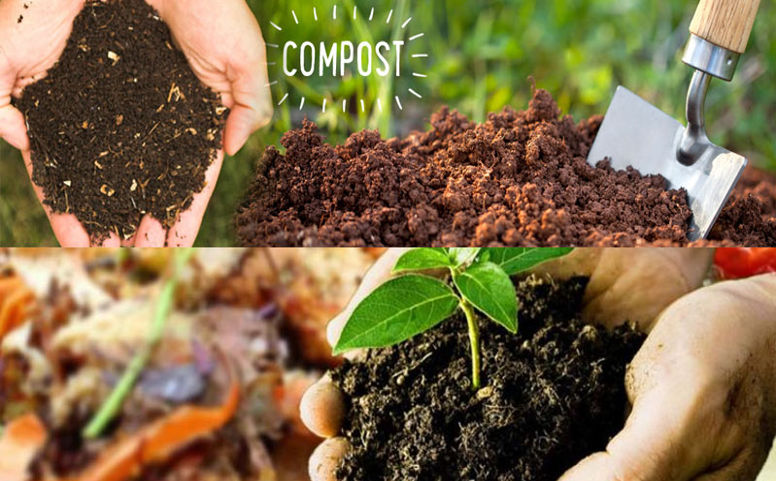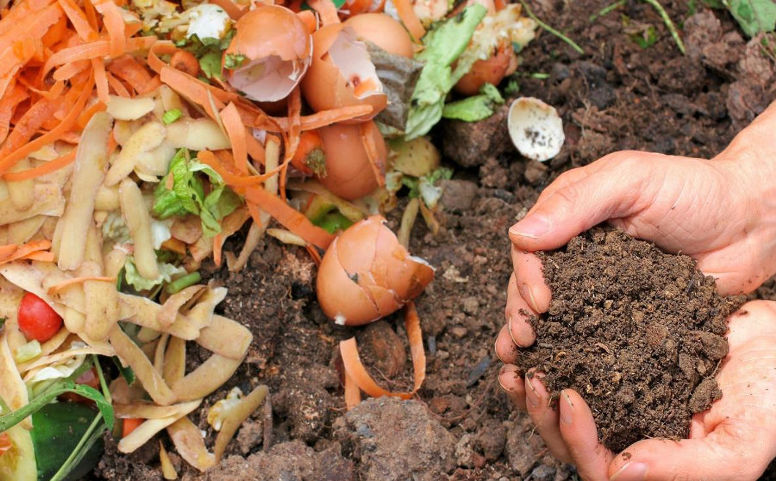Over the last couple of years so much has been heard about composting and people surely have a lot to say. While there has been a general improvement in the awareness, teaching and encouragement of sustainable practices around our daily behavior there are also a fair share of misconceptions in the same regard.
A popular misconception I have come to find is that biodegradable and compostable mean the same thing. This is incorrect! Biodegradable means that a product will break down naturally over any period of time. So, what is composting? As per the office of campus sustainability, university of Michigan, composting is a natural process by which any organic material, such as food waste or lawn trimmings, is broken down by naturally occurring bacteria and fungus in the soil to form compost. The resulting materials—compost—is a nutrient-rich soil amendment that looks a lot like soil itself. A certified compostable product will contain the required amount of material that breaks down within 180 days into pieces of 2mm (or less). This process of breaking down cannot release any harmful substances into the soil such as heavy metal.
While even a layman may understand the numerous benefits of such a process, I want to put across exactly why we should take and contribute to this process seriously. Let’s look at 7 reasons why we should be turning ‘trash to treasure’!
1. It is SO easy!
Composting is so easy, it can in almost any setting be successful. From bins indoor in an apartment to outdoors in backyards to spaces in offices where material that is compostable is collected and then moved to an external composting facility. Just enabling this 385-million-year-old natural cycle is so empowering!
2. You are making waste useful.
The primary purpose of composting is to make waste or something that is of no use to us useful; and how great is that! So, you are not just making waste useful but, in the process, also reducing waste. Organic waste makes up 25-50% of the garbage that is thrown away. While putting all organic waste under this process is difficult, it must be the goal as composting can significantly reduce overall trash.
3. Improves plant productivity
The process of composting improves plant productivity in terms of higher carbon dioxide absorption and better root growth. The increased microbial activity by means of the compost process while increasing carbon storage in soil provides an environment for growing ‘Mycorrhizal Fungi’ which absorbs carbon dioxide holding back carbon in soil. This system is designed to build and improve soil health. Applying this compost to soil makes for happy plants and better time tending your garden!
4. You are conserving resources!
With the current changes in global climate and its adverse effects it becomes extremely important to make the small lifestyle changes. These eventually have great impact. Composting is definitely a good place to start. Speaking of conserving resources, composting helps save water by soaking it up and releasing it to plants. This means that when there is adequate compost, it isn’t necessary to water the plants as much. When compost is thickly placed as an upper layer it also prevents water from evaporating. With the benefits of the compost created, we also avoid the use of a lot of external resources. Hence, we save on fuel and energy along with such transportation costs. This is such a win-win in so many ways!
5. Enabling a Circular Economy
A circular economy is nothing but a model of production and consumption which comprises of sharing, reusing, repairing, refurbishing and recycling existing material and products for as long as possible. This simply extends to the life cycle of products. Further value is created because a product that is almost exhausted is used productively again and again. This implies reducing waste to a minimum as when a product reaches the end of its life, its materials are kept within the economy whenever possible. Carbon belongs to the soil. Composting of organic waste ensures carbon is given back to the soil. Composting is the closest and most basic example of a circular economy.
6. It is more cost effective!
Composting is extremely inexpensive, especially considering the benefit that it reaps. The use of existing internal resources is way more advantageous to plant growth than the use and purchase of external resources. Composting enriches the soil with nutrients and in turn eliminates the need for such pesticides or fertilizers that require fossil fuels for production and can cause harm to health. There is also an improvement in the soil’s capability to retain moisture thereby reducing erosion. Plant diseases and pests drop by a significant number and it additionally aids in removing carbon from the atmosphere.
7. Composting is fun!
This entire process to put it very simply is actually really fun! Well, maybe ‘satisfying’ and ‘empowering’ is a better way to put it. When you carry out this process of composting you are definitely more aware of waste in general and are completing the recycling loop in its true sense.
Do you really need more reasons to start composting? Or if not start, at least support and enable this process of converting trash to treasure? I guess not. Happy Composting, folks! Explore our products – https://orbin.in/products/

